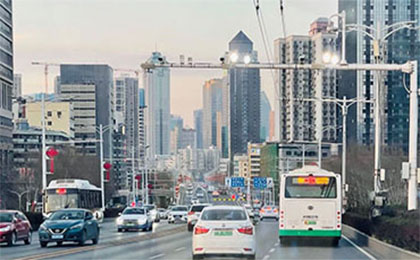


As the side event of the High-level Political Forum (HLPF) 2020, United Nations, the Urban Form and COVID-19: Thinking through Issues of Density, Overcrowding, Public Space and Health jointly organized by UN-Habitat and World Health Organization (WHO) was held online on July 9, 2020.
Mr. Shi Nan, the Executive Vice President and Secretary-General of Urban Planning Society of China (UPSC), was invited to attend the form. The panelists also include: Ms. Maimunah Mohd Sharif, the Executive Director of UN-Habitat, Under-Secretary-General of the United Nations; Dr. Naoko Yamamoto, the Assistant Director-General of WHO; Mr. Damià Calvet, the Councilor of Territory and Sustainability, Government of Catalonia, Spain; Ms. Oxiris Barbot, the Commissioner of New York City Department of Health, etc.. The forum was hosted by Mr. Chris Williams, the Director of New York Office, UN-Habitat.
Reacting to the spread of Covid-19, this forum is to discuss how local governments can take actions to implement the 2030 Agenda for Sustainable Development, promote the understanding of government officials, professionals and scholars on the relationship between urban form and the transmission, prevention and control of disease, share the experience in responding to the pandemic under different urban environments and densities, and promote the collaborations of urban decision makers, public health experts and urban planning experts during and after the pandemic.

Ms. Maimunah Mohd Sharif, the Executive Director of UN-Habitat, Under Secretary-General of the United Nations (UPSC)
In her speech, Ms. Maimunah Mohd Sharif said that the Covid-19 has brought major challenges to the healthy development of cities. The relationship between urban form and pandemic has become a topic of concern to everyone. Every country is very concerned about how to make cities effectively respond to the catastrophic events including pandemic and climate change. Meanwhile, the difficulties faced by informal residential places such as slums, the health needs of vulnerable groups in cities and the governance of communities should also be the focus of attention. She hopes that the global consensus could be further consolidated by implementing the New Urban Agenda and the cities could be taken as the starting point to deal with various challenges.

Dr. Naoko Yamamoto, the Assistant Director-General of WHO (UPSC)
Dr. Naoko Yamamoto pointed out that cities not only exist as production machines, but also need to serve the well-being of everyone. Urban crowding may make it more difficult to cope with the pandemic, especially for vulnerable groups and residents in informal settlements. A healthy city needs to benefit everyone and every corner, and needs to guarantee the demand of all people for basic services, and medical facilities and supplies especially in the context of Covid-19.
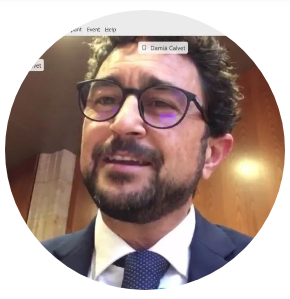
Mr. Damià Calvet, the Councilor of Territory and Sustainability, Government of Catalonia, Spain (UPSC)
Mr. Damià Calvet pointed out that we should take a correct look at the relationship between urban density and the pandemic. The high urban density is necessary for the development of the city, while it may create conditions for the spread of the virus. However, the city is also the key to solve the problem. The urban density provides convenience for management and makes the management and control at the community level achievable. We need to build healthy and sustainable cities through comprehensive consideration of economic, health, and cultural factors. Simultaneously the world needs to further strengthen consensus and work together to promote the New Urban Agenda.
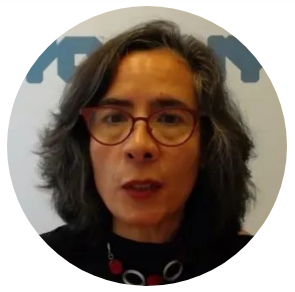
Ms. Oxiris Barbot, the Commissioner of New York City Department of Health (UPSC)
Ms. Oxiris Barbot shared the case of New York and listed the difficulties faced by New York in the prevention and control of the pandemic. The high urban density highlights the shortage of medical and health resources, and also brings difficulties to the daily lives of those who live in isolation. Besides, the gathering activities triggered by various recent hot events have brought potential threats, which makes the prevention and control more difficult, and also brings challenges to the restoration of normal operations of the city.
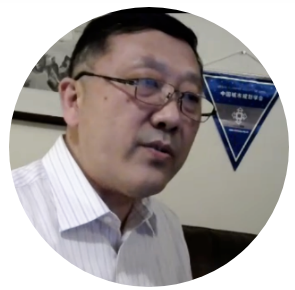
Mr. Shi Nan, the Executive Vice President and Secretary-General of Urban Planning Society of China (UPSC)
Mr. Shi Nan focused on the relationship between urban density and disease transmission. He pointed out that urban density is not only the product of scale economy and agglomeration effect, but also the value of urban existence. Urban density not only means the density of population and the intensity of development, but also means the density of services and the accessibility of facilities, while the latter plays a key role in fighting against the pandemic. By comparing the population density and the cumulative number of new infections at different spatial scales of macro, middle and micro, he pointed out that there is no direct correlation between population density and disease transmission, while the contact intensity is closely related to the spread of the pandemic. Other comprehensive factors, including spatial distance, governance level and social consensus, will also affect the prevention and control of the pandemic.
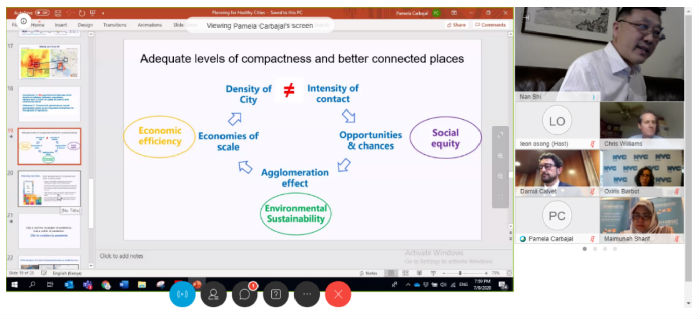
Key points of Mr. Shi Nan in the online forum[Photo/UPSC]
Mr. Shi Nan believes that it is the reduction of contact and cut-off of infection routes rather than the simple density reduction that is needed in the fight against the pandemic. Furthermore, cities are not the cradle of infectious diseases, but the victims of the pandemic as well as the key to the prevention and control the pandemic. Policy makers, managers and planners of all countries should promote cities towards more resilient, inclusive and healthy development through comprehensive high-quality planning under the guidance of 2030 Agenda for Sustainable Development and New Urban Agenda.
The annual High-level Political Forum (HLPF) organized by Economic and Social Council (ECOSOC) is the main platform of United Nations for sustainable development and plays an important role in promoting and evaluating the 2030 Agenda for Sustainable Development and the Sustainable Development Goals (SDGs) at the global level. The HLPF includes high-level segment, ministerial segment, side events and special events.
The HLPF 2020 was held online on July 7-16, 2020 with the theme of “Accelerated action and transformative pathways: realizing the decade of action and delivery for sustainable development”. The HLPF will review the progress and challenges of each country on their way towards achieving the SDGs by 2030, and summarize experience and lessons in the context of pandemic to promote global cooperation and put sustainable development back on track.
Translated by Zhao Shengbo